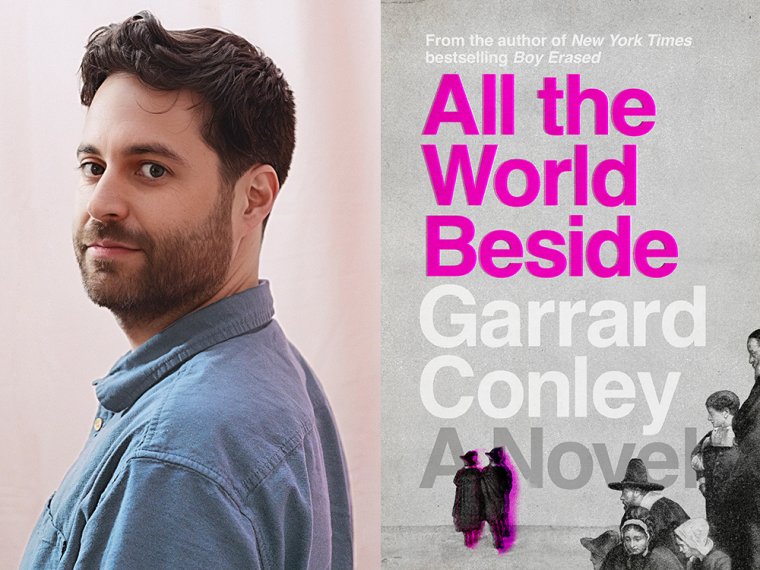This week’s installment of Ten Questions features Garrard Conley, whose debut novel, All the World Beside, is out today from Riverhead Books. In this historical drama set in Puritan-era New England, two men—a doctor named Arthur and a minister named Nathaniel—find their Christian faith tested by an attraction to one another that defies tradition and threatens their ties to their community. As they become increasingly bound to one another, their wives and children are unwittingly caught up in their affair and must maneuver to shield themselves from the consequences. Nathaniel’s son, Ezekiel, who considers Arthur his father as much he does Nathaniel, is sympathetic to the men’s predicament and seeks a world in which people can live more freely. Meanwhile Ezekiel’s sister, Sarah, has the opposite reaction, with her father’s “sinfulness” launching her on a more zealous religious path. Publishers Weekly praises the book, calling it “a potent chronicle of an underexplored era in queer history.” Garrard Conley is the author of the best-selling memoir Boy Erased (Riverhead Books, 2016). His work has been published by the New York Times, Oxford American, Time, and Virginia Quarterly Review, among other outlets. He is an assistant professor of creative writing at Kennesaw State University in Georgia.

Garrard Conley, author of All the World Beside. (Credit: Brandon Taylor)
1. How long did it take you to write All the World Beside?
If thinking can be called writing, then I spent about seven years writing All the World Beside. The book involved a repeating pattern of thinking, researching, writing, and redrafting through about three or four major overhauls to the novel’s structure.
2. What was the most challenging thing about writing the book?
I was very conscious of the fact that my characters, many of whom we would call “queer” today, would not have conceived of themselves along those identity lines. Writing with an eye toward the modern reader’s understanding—really trusting the reader to get it without my saying it—was a challenging craft concern.
3. Where, when, and how often do you write?
I want to say I can write anywhere, but the truth is I migrate throughout the house because I need to feel comfortable to write. One month in the bedroom, another at the kitchen table. I get into obsessive habits and rituals, everything you’re not supposed to do. If I’m at work on a project, I write every morning for two to three hours, anywhere from 6:00 AM to 11:00 AM.
4. What are you reading right now?
I just reread 1984 for a segment I did on Ali Velshi’s show on MSNBC. What a marvel that book continues to be. “Doublethink” is a concept that saved me from fundamentalist thinking.
5. Which author or authors have been influential for you, in your writing of this book in particular or as a writer in general?
It should, I hope, come as no surprise that Nathaniel Hawthorne is a big influence on this project. As part of my research I also ended up loving a biography of Anne Hutchinson by Eve LaPlante called American Jezebel: The Uncommon Life of Anne Hutchinson, the Woman Who Defied the Puritans.
6. What is one thing that surprised you during the writing of All the World Beside?
I was most surprised to learn that the women of my novel were very much in charge of the framing of this gay love story. In many ways it’s how the people around the gay love story react that shapes the entire narrative.
7. What is one thing your agent or editor told you during the process of publishing this book that stuck with you?
Both my agent and editor gave me some version of this very helpful advice: Don’t get so conceptual with your project that you lose sight of the living, breathing characters that matter most.
8. If you could go back in time and talk to the earlier you, before you started All the World Beside, what would you say?
Get ready for about fifteen drafts. Get ready for doubt and false starts.
9. What forms of work, other than writing, did you have to do to complete this book?
I traveled to multiple historic towns to get a feel for the period. I visited the archives of the Massachusetts Historical Society to read letters from the period. I read a lot of sermons—so, so many sermons.
10. What’s the best piece of writing advice you’ve ever received?
Commit to the vision.








